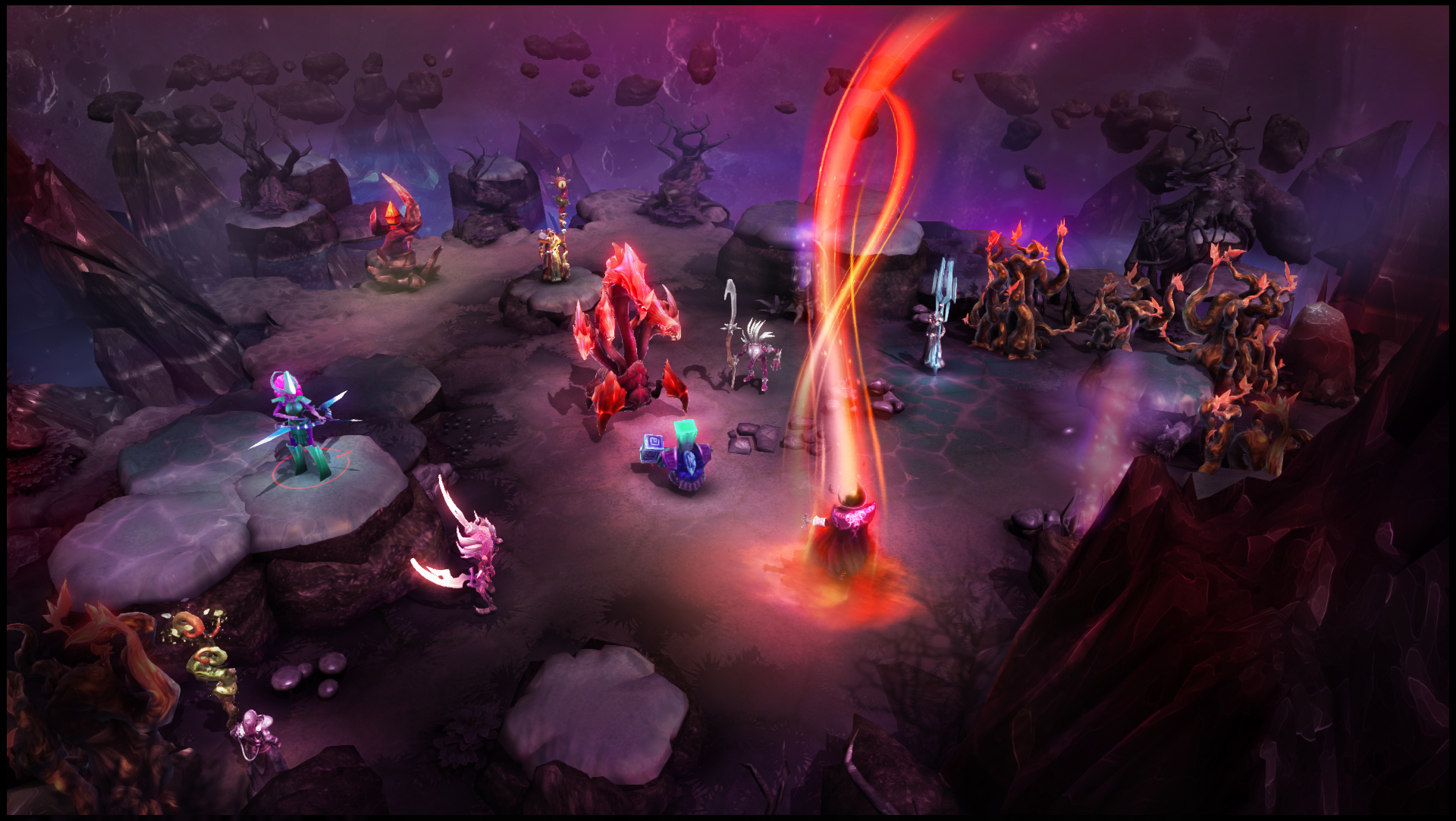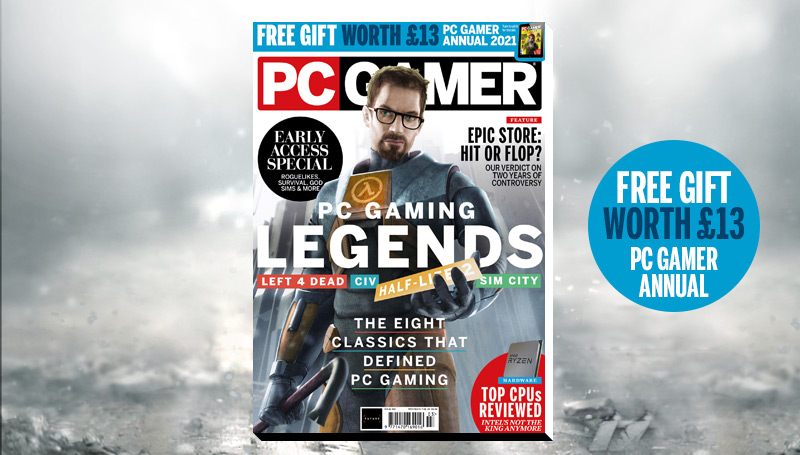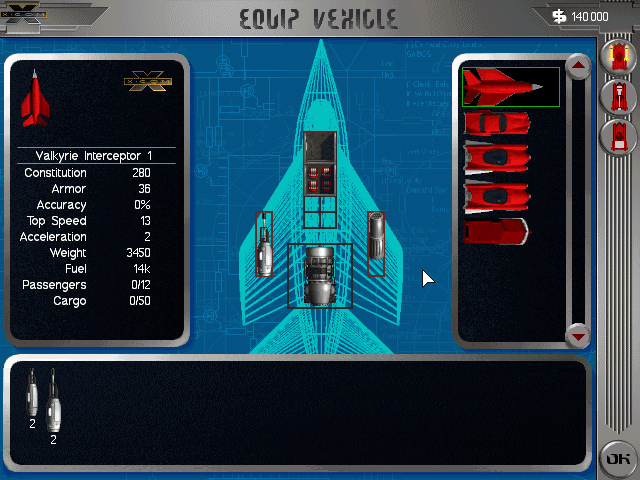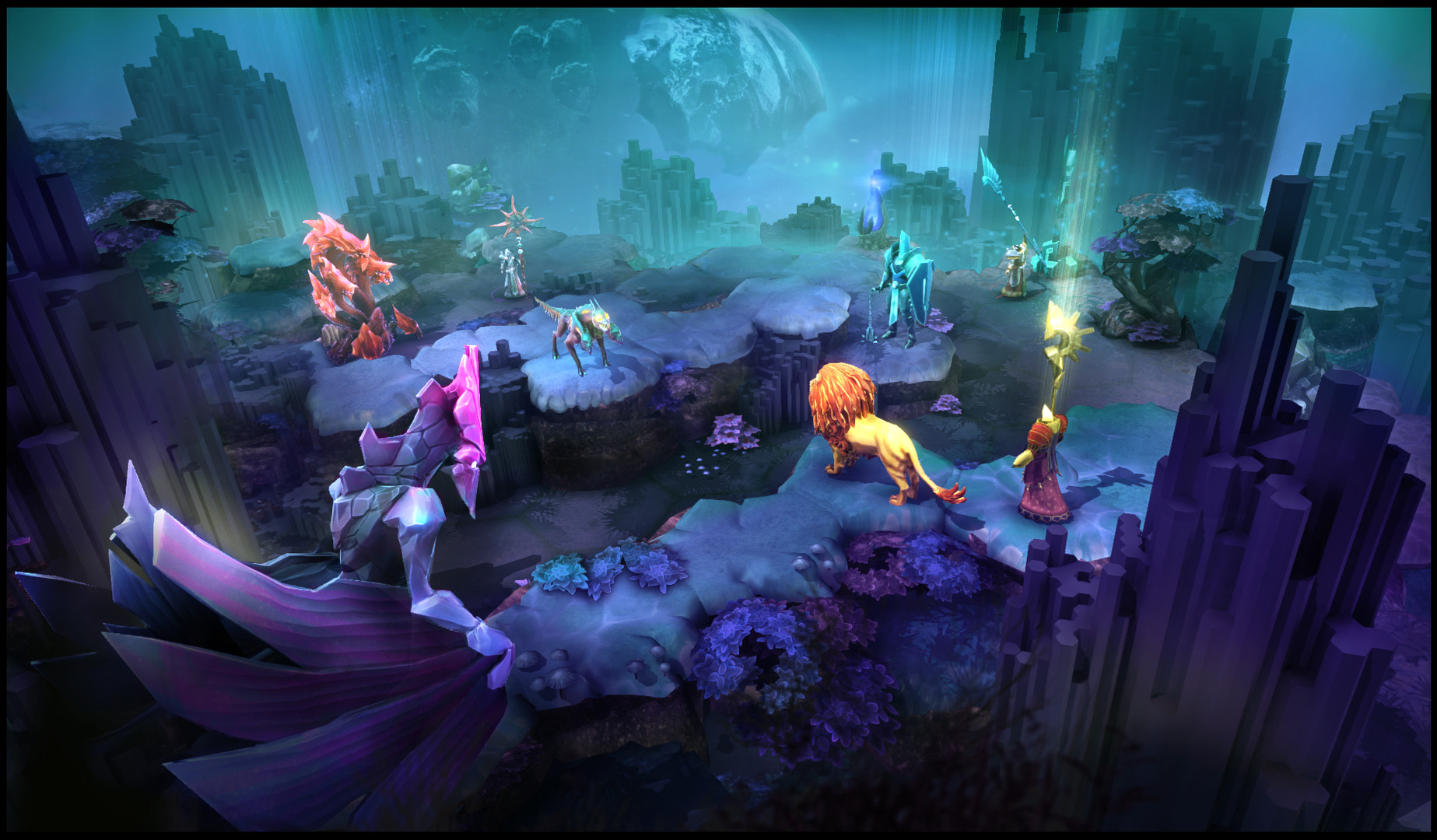How XCOM's Julian Gollop improved on the board games he loved as a kid
"I saw computer games as a way of liberating players from the tedium."


This article first appeared in PC Gamer magazine issue 354 in February 2021, as part of our 'Positive Influence' series, where every month we chat to a different developer about the inspirations and unexpected connections behind their work.
Thank you to the 1980s schoolkids who wouldn't let Julian Gollop join in. They were playing Warlock, a wizard-battling board game from a new publisher named Games Workshop, and Gollop was forced to watch from the sidelines. He consoled himself by picking holes in the game's design. Warlock had cards, which represented player's spells. But its board was wholly cosmetic—once the wizard tokens were placed in their floating arena, they didn't move again. "What's the point?" thought Gollop. "This board is useless."
And so he built Warlock for himself—unlicensed but better. In Gollop's game, when a wizard summoned a creature, its card was placed on the board and moved around like a counter. Rather than simply playing the hand they were dealt, wizards directed units around a changing battlefield. Gollop called the game Chaos, and in 1985, he remade it for the Spectrum. The publisher? Games Workshop.
For most developers, a game's story would have ended there. But Gollop remade Chaos again in 1990, and in '98, and most recently as Chaos Reborn in 2015. That impulse, to find the flaws in the games he loves and improve on them, has driven the XCOM designer throughout his career. "There's always an element of unfinished business," he says. "I could have done that better, or it would have been more interesting to have done it that way."

Gollop's first love was Escape from Colditz, one of the many board games that cluttered the family home. While his dad preferred the abstract purity of Bridge and Cribbage, young Julian was won over by the historical tunnels and accurate layout of Castle Colditz's map. "It tried to simulate the actual reality," he says. "It wasn't very good at it, but that was fascinating to me."
The same fascination led Gollop to play Sniper!, a WWII tactical sim in which each soldier could carry out many actions ("A prepared satchel charge which has been thrown or placed in a hex may be picked up by an enemy man as if it were a friendly weapon"). And from there, he graduated to Avalon Hill's Squad Leader. "You had little counters that represented entire squads and individual vehicles," he recalls. "It definitely wins the prize for being the most complex board game in existence. The full rulebook for that, and you can still buy it, is a vast folder."
The old world
That folder spoke to the limitations of the tabletop. As much as Gollop appreciated board games that reached for simulation, there was no denying they placed a burden on the player to keep track of the numbers. A burden that, by the '80s, could be taken on by PCs. "I saw computer games as a way of liberating players from the tedium," Gollop says, "allowing them to have an immersive experience in something which was simulating reality in some ways."

Gollop's career has been intertwined with Games Workshop, which became the first UK distributor of Dungeons & Dragons in the late '70s—fuelling several years of Gollop's weekend roleplaying sessions with a friend. He even worked on the digital version of a Games Workshop game, Battlecars, building a Mad Max-style car designer.
Keep up to date with the most important stories and the best deals, as picked by the PC Gamer team.
It would be inaccurate to say that Warhammer influenced Gollop, however. Rather they emerged simultaneously as part of the British board game zeitgeist. "It's from the same origins," Gollop says, "which is hex-and-counter wargaming." You can still see a shared philosophy at work in XCOM and, say, Blood Bowl—both games leaning into fickle chance, delighting in the thrill and terror of permanent consequences.
Lately, Gollop has returned to another influence from his childhood home—namely that of his brother, Nick. For many years, the pair worked together on games like XCOM: Apocalypse, where Nick's taste for grand strategy games such as Civ and Master of Orion was brought to bear. You can see the throughline in Phoenix Point, which is as much a game about faction conversation, trading and betrayal as it is squad tactics. The reason it took Julian so long to get into 4X himself? "Usually it got to a point where I was playing a game which I thought was great, but I wanted to make my own which was better."
Jeremy Peel is an award-nominated freelance journalist who has been writing and editing for PC Gamer over the past several years. His greatest success during that period was a pandemic article called "Every type of Fall Guy, classified", which kept the lights on at PCG for at least a week. He’s rested on his laurels ever since, indulging his love for ultra-deep, story-driven simulations by submitting monthly interviews with the designers behind Fallout, Dishonored and Deus Ex. He's also written columns on the likes of Jalopy, the ramshackle car game. You can find him on Patreon as The Peel Perspective.

